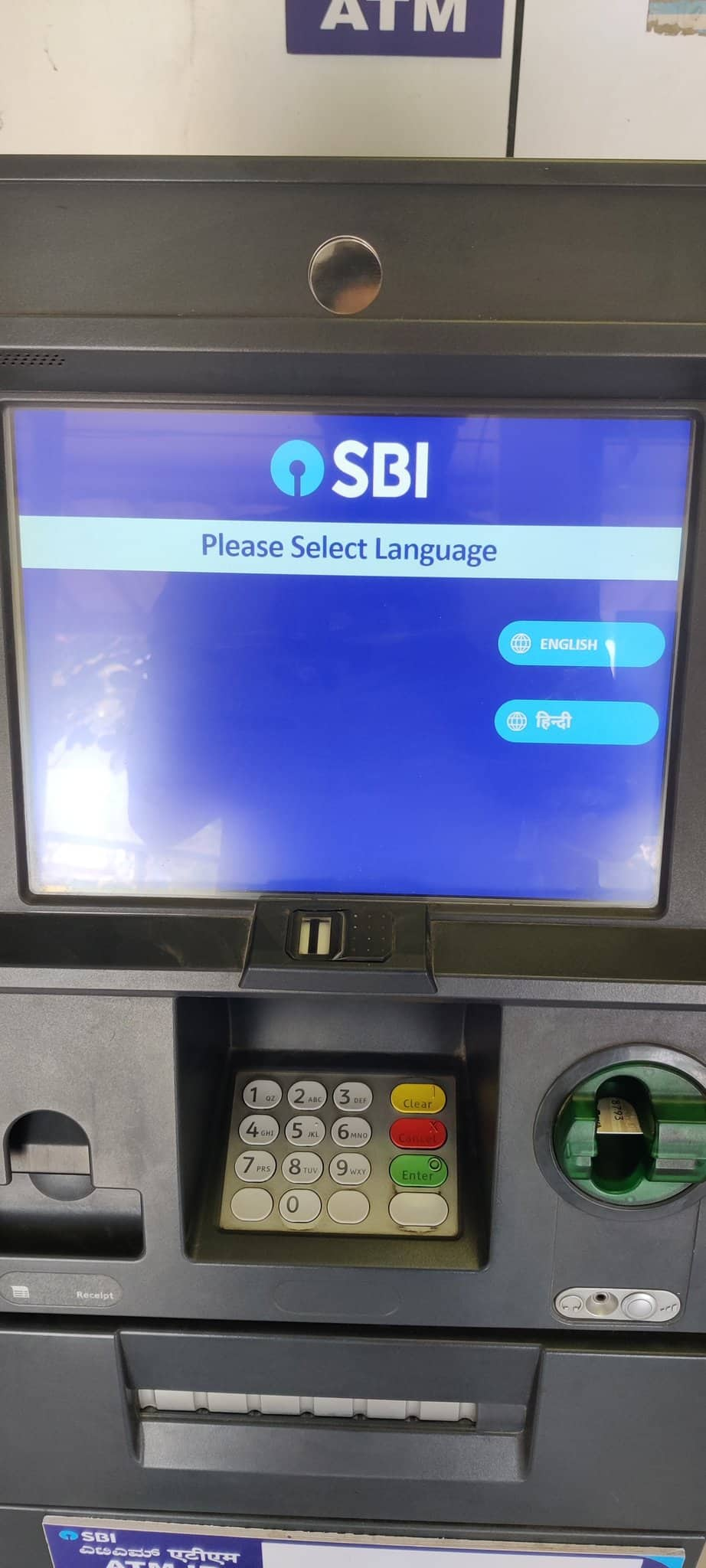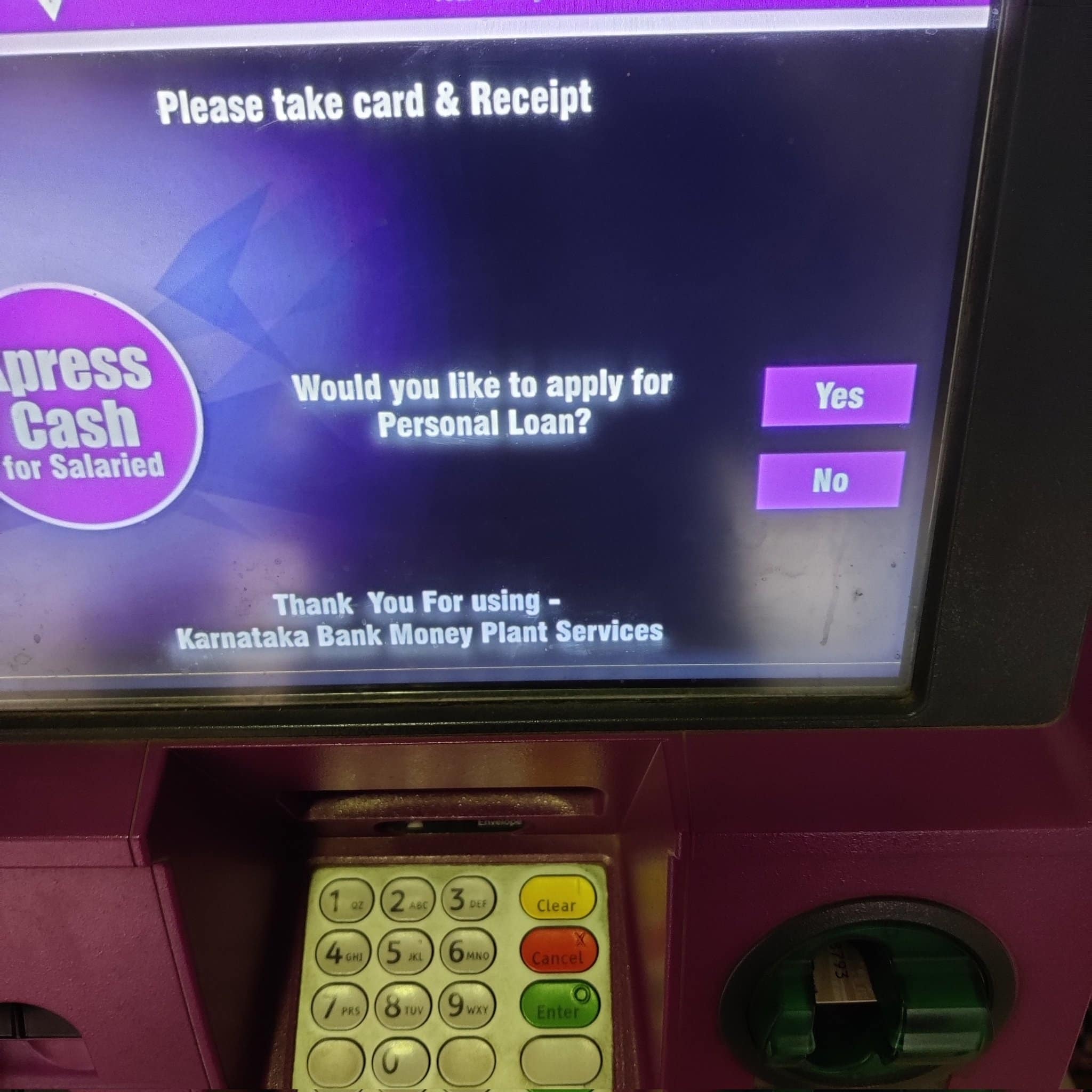



On January 5, a video on Twitter from the Bangarpet branch of Canara bank in the Kolar district of Karnataka showed a bank employee arguing with a customer to speak in Hindi while the customer replied that he knows only Kannada, the local language.
ಕರ್ನಾಟಕದಲ್ಲಿ ಕನ್ನಡದಲ್ಲಿ ಸೇವೆ ಕೊಡಿ ಎಂದು ಬೇಡಿಕೊಳ್ಳಬೇಕೆ ಕನ್ನಡಿಗರು.. ️#serveinmylanguage#StopHindilmposition#ಹಿಂದಿ_ಹೇರಿಕೆ_ನಿಲ್ಲಿಸಿpic.twitter.com/tR1OyYQkJN— ಚೇತನ್ ಸೂರ್ಯ ಎಸ್ - Chethan Surya S (@Chethan_Surya_S) January 5, 2023
This isn’t an isolated incident.
Speaking to Moneycontrol, Krushika AV, a farmer from Sringeri, a town in western Karnataka, said in his town, a majority of people only know Kannada and some banks do not have communication options in Kannada.
“In some banks, forms, cheque book, pass book, challans etc. are available in Hindi and English and not in Kannada,” Krushika said. Also, the token vending machines, pass book printing machines, and token announcement recordings are also only in English and Hindi,” Krushika said.

There have been similar complaints from other non-Hindi speaking states as well about banks insisting for Hindi or English as the only language of communication and not making available the local language in respective areas.
In this context, here is a short explainer to understand the whole debate:
What is this problem?As mentioned above, in many states, customers only speak in the regional language and aren’t comfortable with Hindi. For instance, people in Karnataka use many languages like Kannada, Tulu, Konkani, etc. but the primary regional language is Kannada.
In Tamil Nadu’s case, alongside the regional Tamil language, people also use Urdu and Malayalam. Whereas in Andhra Pradesh and Telangana, Telugu, Hindi, Oriya and Urdu are some of the languages people use but Telugu is the primary regional language.

Customers say banks primarily in the rural and semi-rural region, have notices, posters and automatic teller machines (ATM) only in Hindi and English. This is resulting in a problem for non-Hindi/English speakers.
What do the RBI rules say?RBI in a 2015 master circular, said that banks should have a board approved policy for general management of the branches with information available in regional languages.
“Banks should display indicator boards at all the counters in English, Hindi as well as in the concerned regional language. Business posters at semi-urban and rural branches of banks should also be in the concerned regional languages,” the RBI circular said.

Other than this, the circular also stated that banks should also provide customers with booklets consisting of all details of service and facilities available at the bank in Hindi, English and the concerned regional languages and use Hindi and regional languages in transacting business by banks with customers.
What is the government stance?The Union Government, in the winter session of the parliament, said public sector banks are complying with the RBI guidelines of using a regional language other than Hindi and English for official communication.
On December 20, Union Finance Minister Nirmala Sitharaman while addressing a question in the parliament said that almost all the banks are following RBI’s trilingual guidelines.
What is the response of banks on this?Karnataka Bank said that it has worked to implement Kannada alongside Hindi and English in its ATMs.
“All our ATMs and cash recyclers located in Karnataka have been incorporated with Kannada, Hindi and English languages for all financial and non-financial transactions,” the bank said in a statement to Moneycontrol
Email communication sent to other banks mentioned above had not been unanswered till the time of the publication.
What should a customer do if his/ her bank refuses to communicate in the local language?As per RBI regulations, if a bank refuses to communicate in the local or regional language, they can register a complaint under the central bank’s banking ombudsman scheme.
A bank ombudsman, a senior official, is appointed by RBI to redress customer complaints against deficiency in certain banking services.
Customers can reach out to the nearest ombudsman office, which are majorly located in the capital cities of states where they can register their complaint.
Discover the latest Business News, Sensex, and Nifty updates. Obtain Personal Finance insights, tax queries, and expert opinions on Moneycontrol or download the Moneycontrol App to stay updated!
Find the best of Al News in one place, specially curated for you every weekend.
Stay on top of the latest tech trends and biggest startup news.